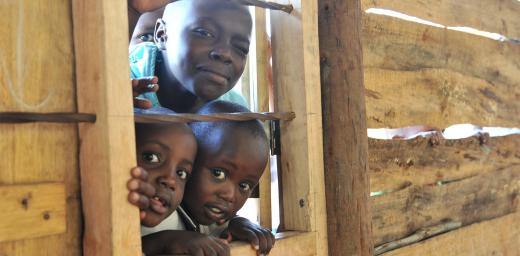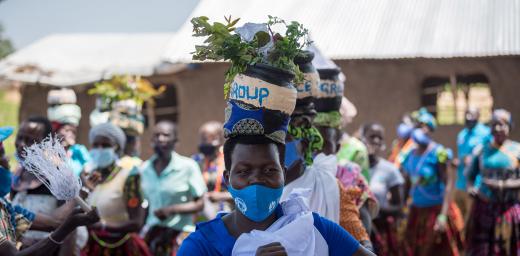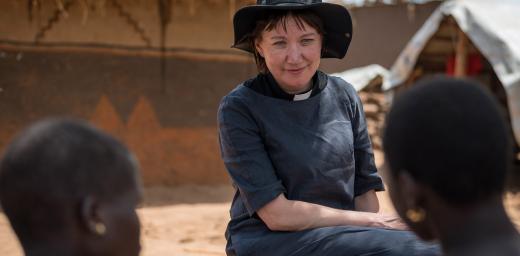Humanitarian crisis in northern Uganda worsens
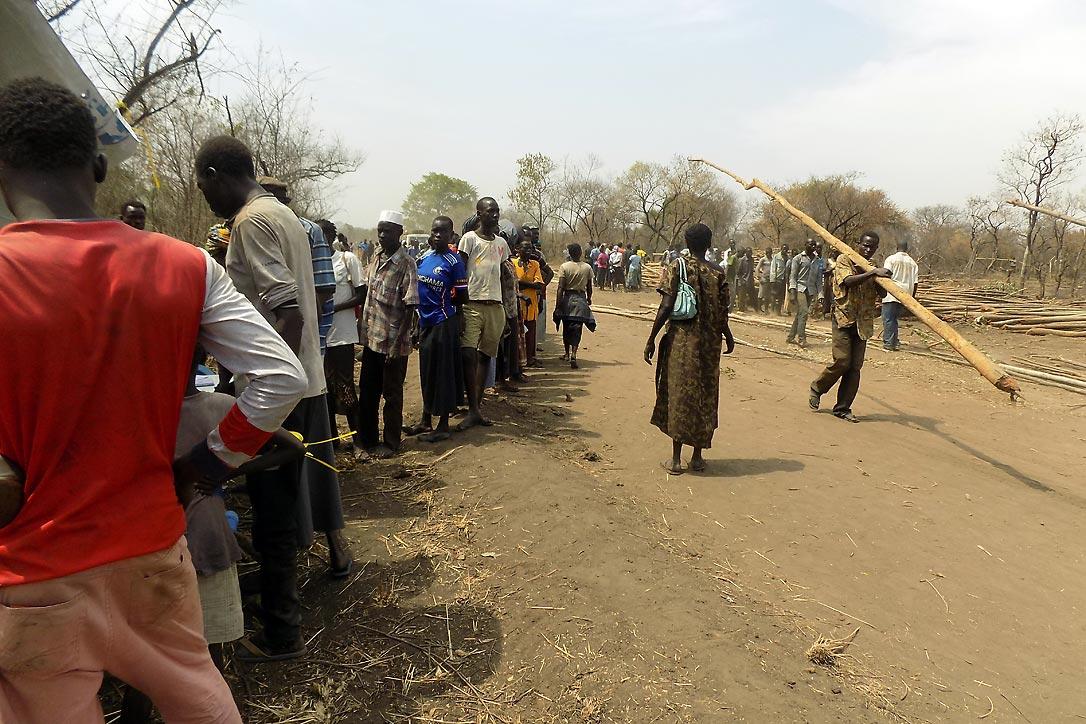
South Sudanese refugees in the new camp of Palorinya. The camp currently has 37,000 inhabitants, all of whom have arrived in the past weeks. Photo: LWF Uganda
Thousands flee civil war in South Sudan every week
MOYO, Uganda/GENEVA, 16 January 2016 (LWI) - The peak is over, but the numbers are still overwhelming: about 700 refugees arrive in the LWF transit center in Lefori, Uganda, every day. They are fleeing the civil war and increasing ethnic violence in neighboring South Sudan, as well as a famine.
Northern Uganda has been the main reception area for refugees from South Sudan since the outbreak of the civil war in 2013 and a new surge of fighting in July 2016. In the past three years, close to 650,000 refugees have crossed the border between the two countries according to data by the United Nations High Commissioner for Refugees (UNHCR). The situation is made worse by a famine, caused by the ongoing violence as well as last year’s El Nino phenomenon.
“We live for now”
“Our families were burned alive. Our wives, mothers, sisters and daughters were gang raped in our presence. Corpses of our loved ones fill up the streets,” a tearful South Sudanese refugee says. He adds that, while they witnessed all that horror, the family struggled to protect their lives as gunshots could be heard all day and night. “We live for now, for we don’t know whether we can still enjoy the gift of life in the next hour.”
The latest wave of refugees from South Sudan to northern Uganda was caused by an outbreak of fighting after a failed peace accord in July 2016. The UN Commission on Human Rights in South Sudan observes that “ethnic cleansing” is occurring and warns of impending genocide.
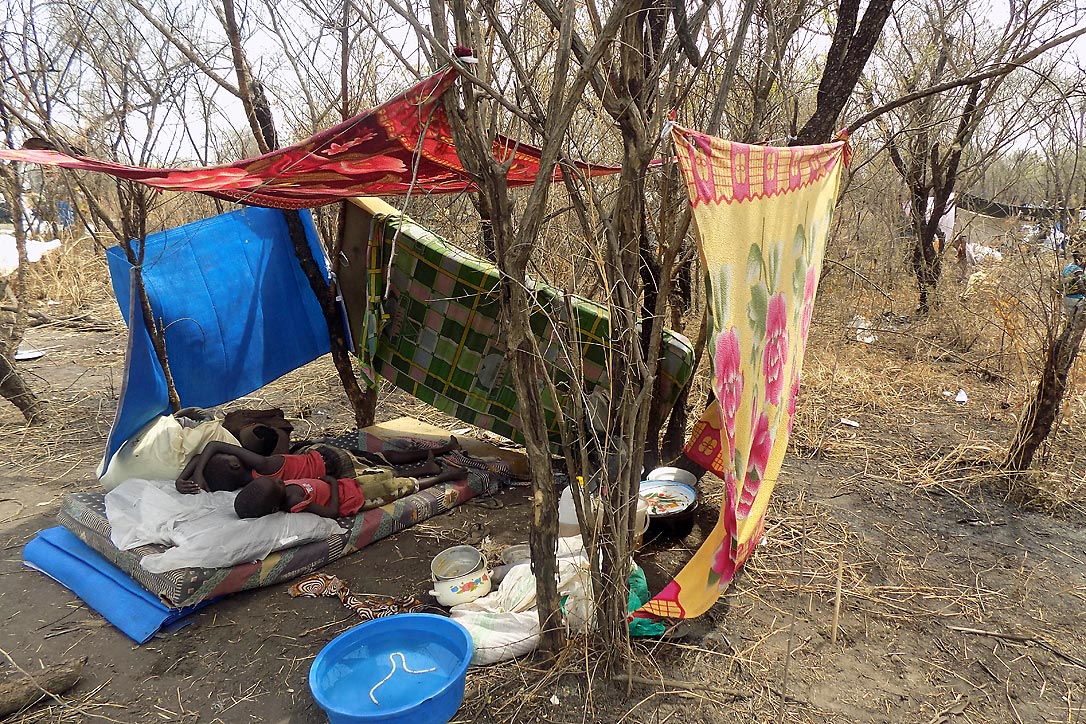
Child refugees sleep in an improvised tent
We provide life-saving humanitarian support such as shelter, water, sanitation and protection, but it is evident that with these large numbers, resources are insufficient. This leaves the refugees living conditions more wanting.
The number of refugees has increased significantly and aid organizations such as the LWF are hard-pressed to receive all the new arrivals and to provide aid. “We provide life-saving humanitarian support, such as shelter, water, sanitation and protection, but it is evident that with these large numbers, resources are insufficient,” says LWF Uganda Country Representative Jesse Kamstra. “This leaves the refugees’ living conditions even more wanting.”
Assistance in four camps
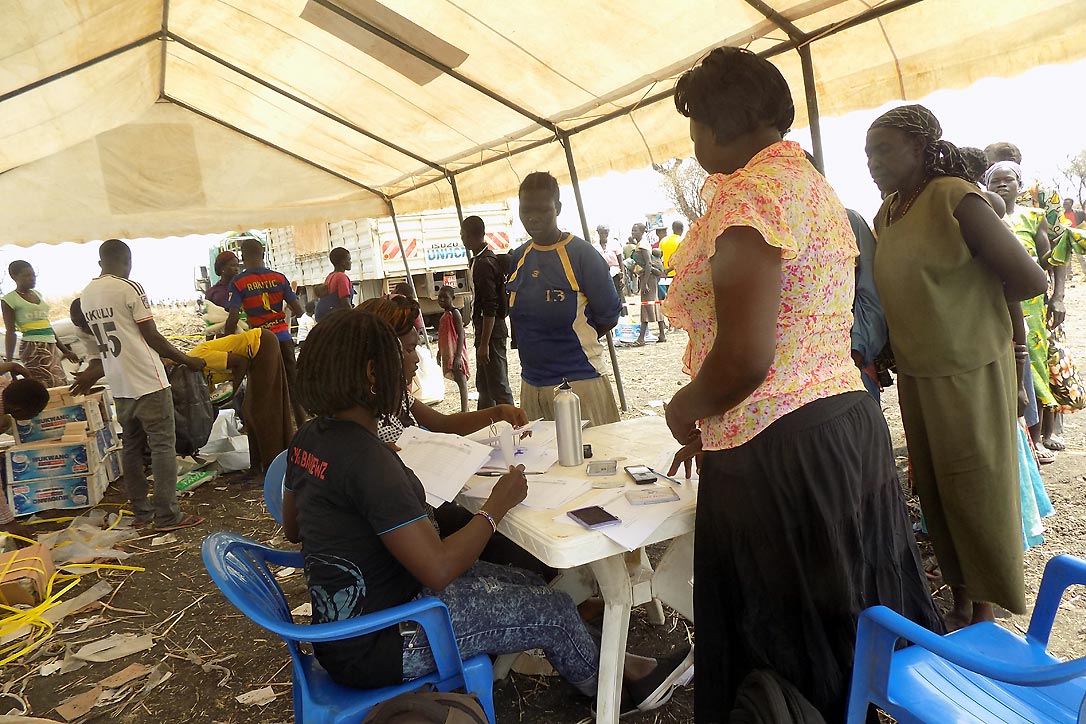
Refugees line up to register for assistance
The South Sudanese refugees are allocated space in the four refugee camps of Adjumani, Palorinya, Yumbe and Arua. The last three have been opened since July 2016. LWF has opened a new field office in Moyo and is implementing multi-sector activities. That includes providing water, sanitation, community services, reception center management, livelihoods and environment protection. A special focus also lies on protection services for children who arrive alone and survivors of sexual and gender-based violence.
To improve access to water and sanitation, LWF has drilled and repaired boreholes and installed water tanks. It has built 64 new latrines, and 8,170 women and girls received sanitary items. LWF had identified 2,300 people with special needs, among them elderly, pregnant women and a large number of unaccompanied or separated children, who have been cared for by LWF staff or through foster arrangements.
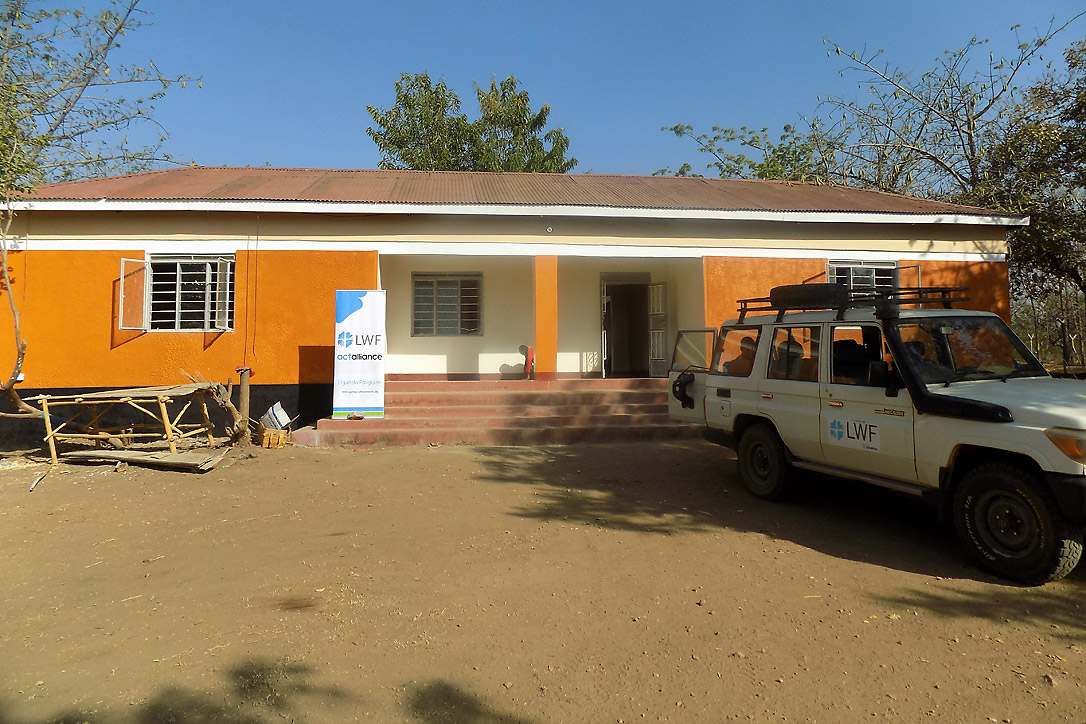
LWF office, Uganda
Seven overnight shelters were added to Lefori reception center to settle those awaiting registration. “It is not enough,” Kamstra says. “The number of refugees is overwhelming and increases every day. We need more support.”


